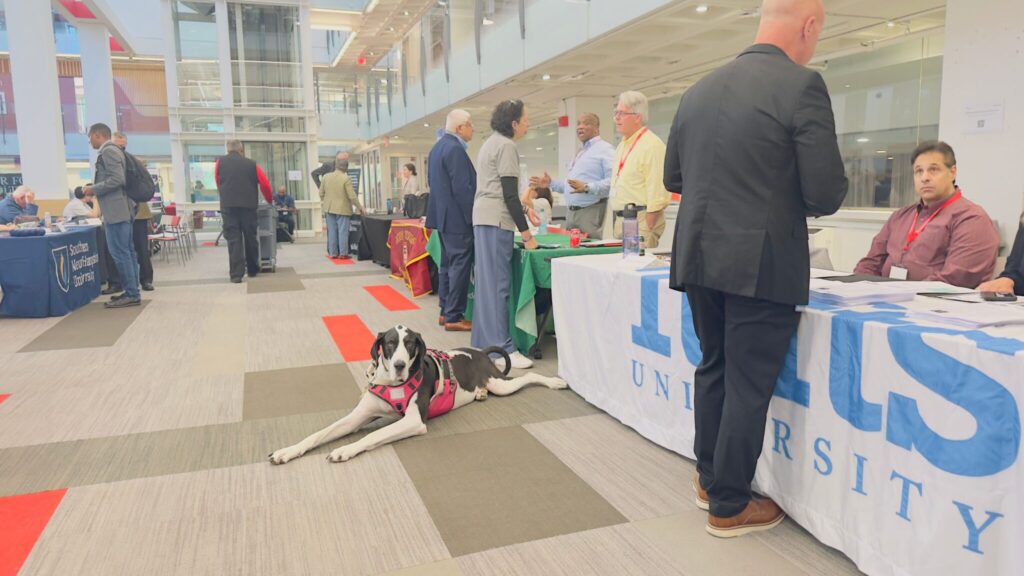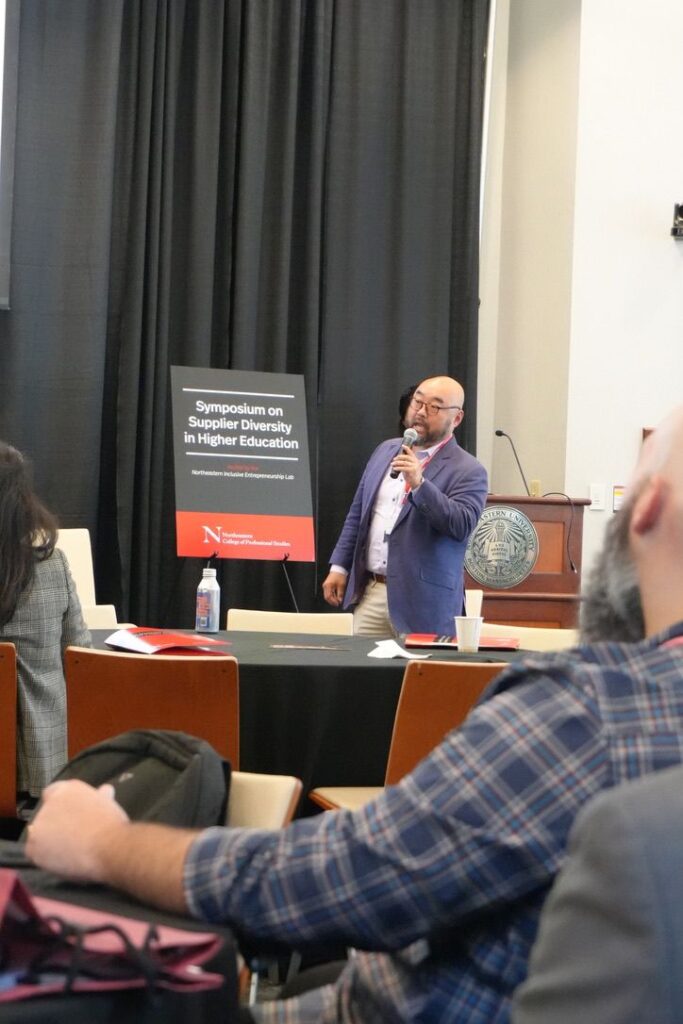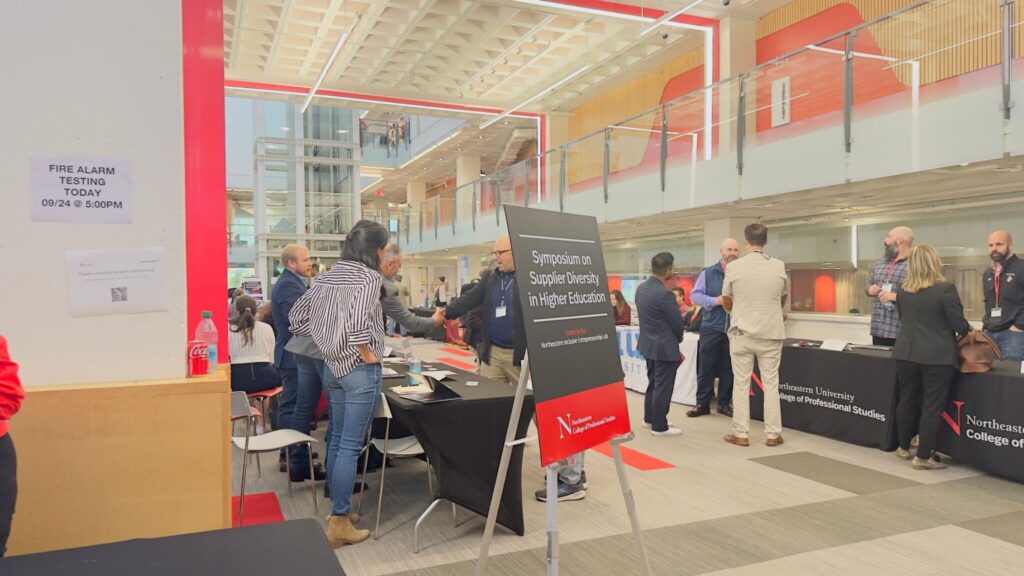CPS Hosts Its Third Annual Supplier Diversity Symposium
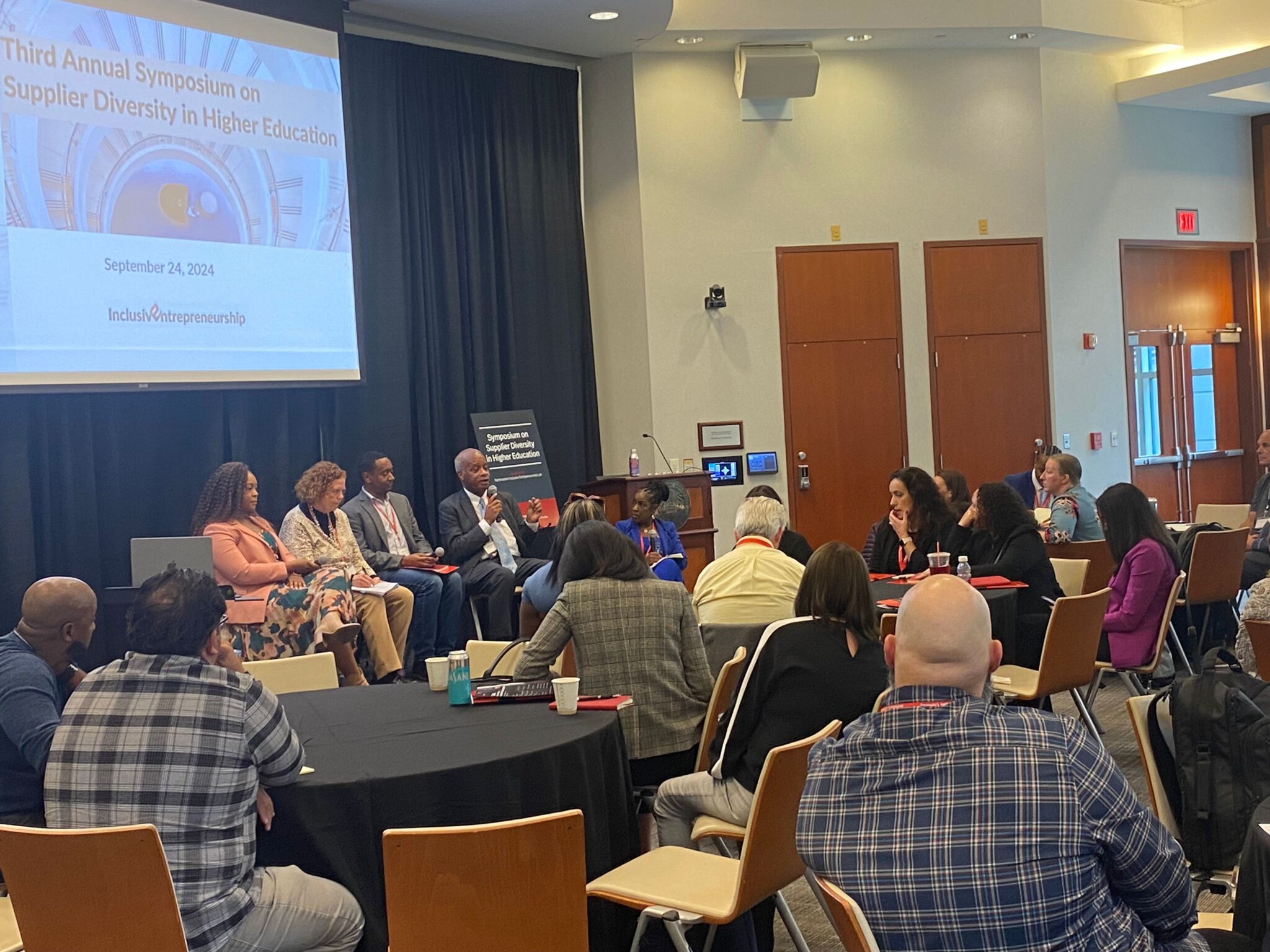
In a large meeting room on Northeastern’s Boston campus, a diverse group of leaders gathered for the Third Annual Supplier Diversity Symposium in Higher Education. The air buzzed with anticipation as Kathleen Byington, VP of Finance, took the stage to kick off the event.
“Our suppliers are integral to our mission,” Kathleen began. “Today, we explore how we can increase diversity in our supply chains, not just for Northeastern, but for higher education as a whole.”
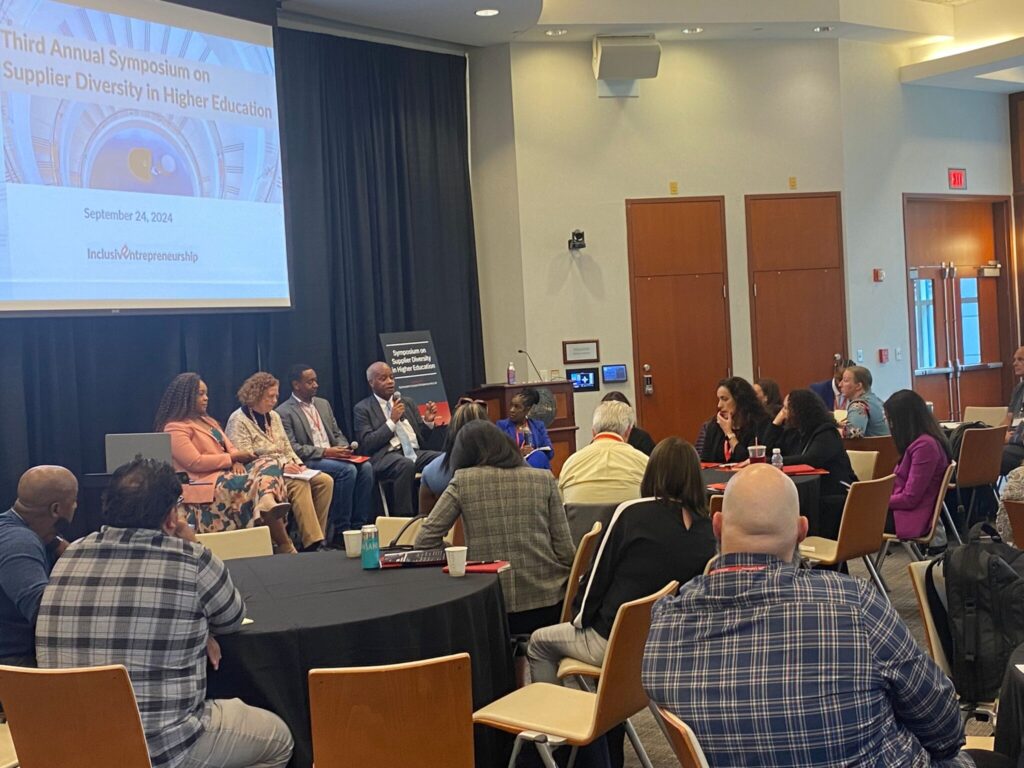
The Symposium was organized and led by CPS’s Lab for Inclusive Entrepreneurship under the leadership of Francesca Grippa, Senior Associate Dean of Research, Carl Zangerl, Associate Teaching Professor, Corporate & Organizational Communication , and Youngbok Ryu, Associate Teaching Professor. With more than 160 in attendance, in person and online, the full day of meetings, presentations, and networking gave both suppliers and procurement leaders the opportunity to learn about the importance of diversifying supplier networks with actionable tools to put those goals into action.
As the keynote speaker, Peter Hurst, President and CEO of the Greater New England Minority Supplier Development Council, stepped up to the podium, heads began to nod in affirmation and agreement as he painted a vivid picture of the landscape of minority business development.
“We’ve made progress,” Hurst noted, “with 1.2 million minority-owned firms generating $1.6 trillion in revenue and employing 9.9 million people in 2020.” But his tone grew somber as he continued, “However, the COVID-19 pandemic devastated many of these gains, particularly for Black and Hispanic-owned businesses.”
Hurst outlined the three critical needs of minority businesses: contracts, financial capital, and intellectual capital. “Less than one percent of venture capital goes to minority-owned businesses,” he stated.
Hurst continued to delve into the challenges facing supplier diversity initiatives. Recent legal attacks, stemming from the Supreme Court’s decision on affirmative action, had caused many companies to pull back on their diversity efforts.
“But why does this matter?” he asked rhetorically. He then unveiled stark statistics showcasing the racial wealth gap in the United States. “This gap affects everything from education to healthcare, from housing to career opportunities,” he explained.
As the symposium progressed, a panel of experts shared insights on leveraging untapped resources. Karen Wallace from Associated Industries of Massachusetts emphasized the importance of certification for minority-owned businesses. “It’s crucial for corporations and higher education institutions to tally their investments in diverse suppliers,” she noted.
The panelists agreed on several key themes: the need for transparency in procurement processes, the importance of access to capital, and the value of networking. Aliesha Porcena from the City of Boston highlighted available resources for small businesses, while Kathleen Wynn from Verizon stressed the importance of digital readiness.
As the day continued, attendees shared a renewed sense of purpose. Addressing supplier diversity isn’t just about ticking boxes – it is about creating a more equitable economic landscape for all.
As Hurst concluded his keynote address, he noted “when more people are successful, more people are successful. Period.” It was a call to action, a reminder that by working together to increase supplier diversity, we can all help bridge the racial wealth gap and create a stronger, more inclusive economy for all.
For more information about the Lab’s work, visit its website: https://nl4ie.sites.northeastern.edu/


